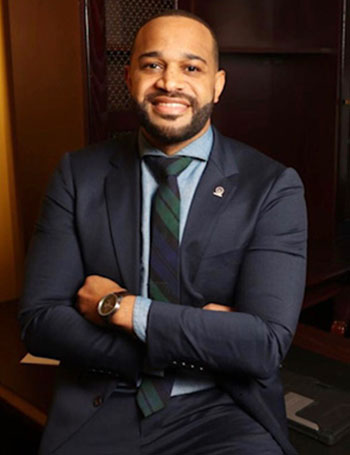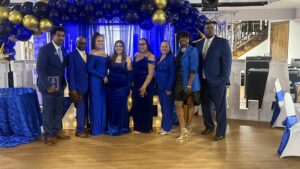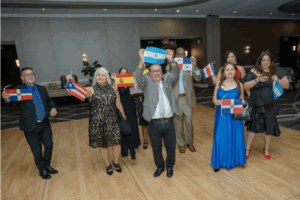‘Souls to the Polls’ Movement Fueled by Faith — and Fear of Reverting to a Dark Past
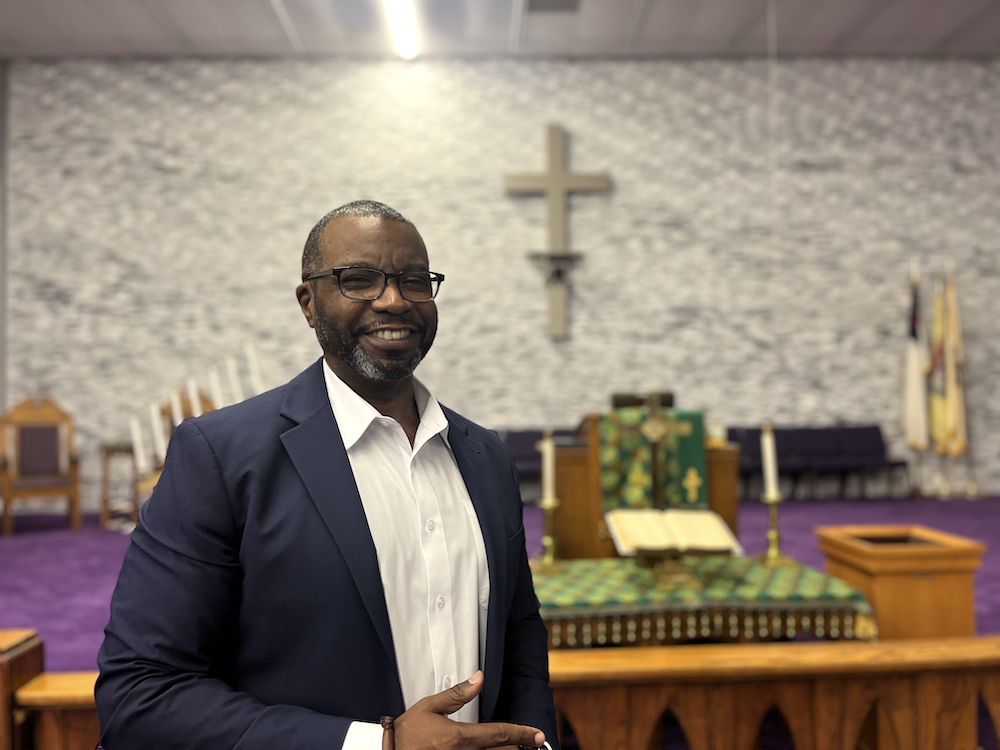
Rev. Charles Boyer by Faithfully Magazine.
FROM FAITHFULLY MAGAZINE
TRENTON, N.J. — “May God bless us, and get us to the polls!” the Rev. Charles Franklin Boyer declared as he closed out a spirited Sunday service at Greater Mount Zion African Methodist Episcopal Church in Trenton. Boyer’s impassioned benediction, which included an appeal for God to “cast MAGA to the pits of hell,” was met with cheers and uplifted hands from worshippers, some of whom swayed on their feet.
“Most people who come to church are already registered to vote early,” Boyer, an activist and the church’s pastor, told Faithfully Magazine after the October 20 service.
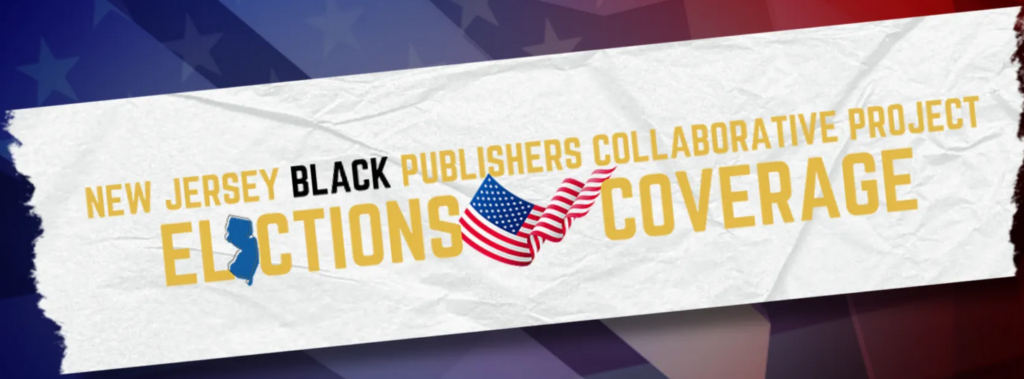
However, registering to vote does not always result in participation. According to U.S. Census Bureau data, over 66% of eligible Black residents in the state registered to vote, but only 41.7% of that group cast a ballot in 2022. However, that percentage is expected to rise this year due to the presidential election, the first to coincide with New Jersey’s emerging “Souls to the Polls” campaign.
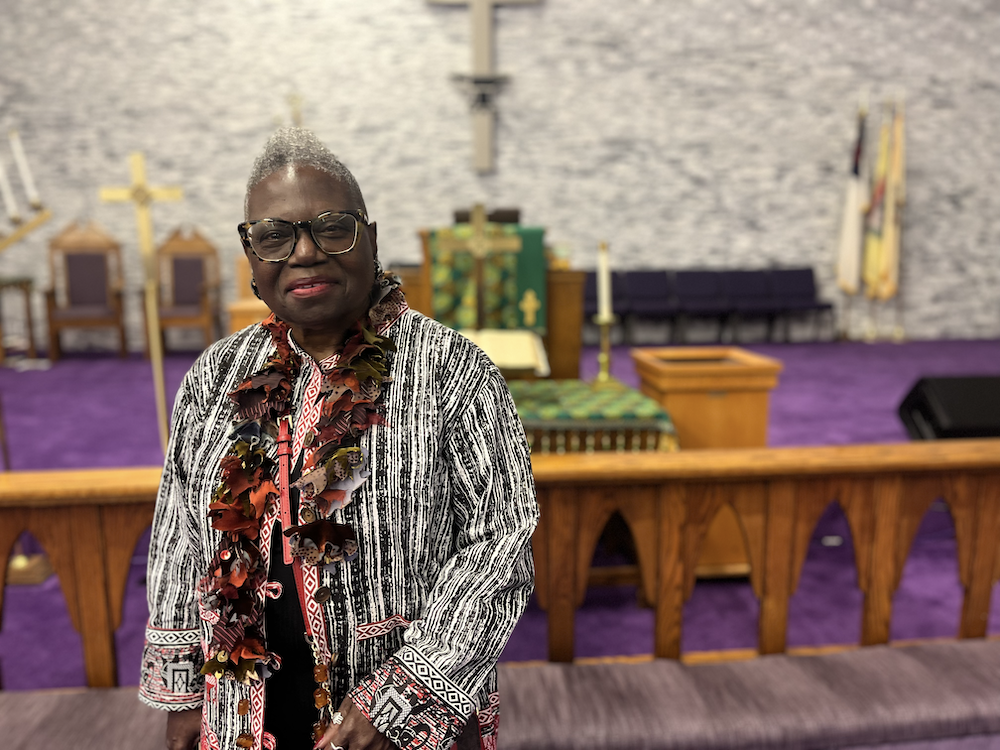
The Rev. Boyer is part of a growing movement involving over 200 local faith leaders who are championing the “Souls to the Polls” initiative. The Black church-led effort aims to mobilize African Americans to take advantage of in-person early voting this year from October 26 to November 3. Nationwide, more than 18 million Americans have already cast their vote in the General Election.
Originating in Florida during the 1990s, the “Souls to the Polls” movement made its way to New Jersey following Gov. Phil Murphy’s signing of related legislation in 2021. Today, a coalition of more than 300 churches, Black fraternities, sororities, and social justice organizations help empower African Americans to vote early.
Nationally, Black voters could play a major role in determining the outcome of the presidential election, according to the Pew Research Center. The nonpartisan fact tank reports that the number of eligible Black voters is projected to reach 34.4 million by November. Notably, Black voters exhibit higher turnout rates than their Latino and Asian counterparts.
The Black Church has been instrumental in registering and mobilizing voters since the Voting Rights Act of 1965, a history that churches like Greater Mount Zion AME frequently reflect on. Sunday services include videos on Reconstruction and the harmful effects of Jim Crow laws and sermons focus on the importance of advancing rights and access for Black communities, and fighting to sustain those rights.
“There is always a threat of more rights being rolled back,” Boyer said. “Rights are what we need to fight for.”
While New Jersey isn’t considered a battleground state, faith leaders like Boyer see critical issues such as protecting reproductive rights and the looming threat of Project 2025 driving unprecedented voter turnout among Black residents. The prospect of Kamala Harris, who is Black and Indian, potentially stepping into the presidency also energizes voters.
“There is a lot going on in this election, which is creating a lot of excitement for folks,” Boyer said.
Fear of MAGA and Project 2025
New Jersey ranks fifth in the nation for Black voter participation, and leaders say they are witnessing an uptick in engagement this election cycle. Many attribute this rise to former President Donald Trump’s nativist MAGA (Make America Great Again) movement.
“Without a doubt, the vast majority of us in New Jersey see the MAGA movement as antithetical to our lives,” Boyer stated.
The notion of “going back” to a time when African Americans faced barriers in voting is unacceptable for Black churches given their historical role in advocating for equitable voting access.
Project 2025, a controversial policy initiative proposed by the Heritage Foundation, has also emerged as a concern. The agenda, which outlines an ultra-conservative vision for the next Republican president, is seen as a threat to civil rights.
Despite Trump’s claims of no involvement with Project 2025, former aides have been linked to the initiative, which seeks to increase presidential oversight and curtail the power of independent agencies like the Department of Justice. A report from the Legal Defense Fund indicates that Project 2025 would have detrimental effects on Black Americans, including proposed cuts to Pell Grants that disproportionately affect Black students and plans to replace civil servants with political appointees, jeopardizing representation in critical agencies.
Project 2025’s policy proposals have galvanized churches and advocacy organizations to ramp up voter mobilization efforts.
“Those we are roping into these efforts to vote; it’s more of a restarting of what was done before, of the work to advance the Civil Rights Movement,” said Austin Edwards, senior policy counsel at Salvation and Social Justice, an organizer of this year’s “Souls to the Polls” campaign.
“It’s re-energizing people to exercise their right to vote because of the forefathers and mothers who have done this work before us,” he said.
Engaging Young Voters and Battling Misinformation
While “Souls to the Polls” is aimed at engaging voters of all ages, this year the early voting campaign is placing a special emphasis on young voters, collaborating with Black fraternities and sororities to host educational events, assist out-of-state students with absentee ballots, and provide transportation for early voting.
Activists are particularly focused on engaging young Black men, a demographic being heavily courted by both Trump and Harris this election cycle. An October GenForward poll revealed that 26% of Black men aged 18 to 40 would vote for Trump, compared to just 12% of Black women. Harris, meanwhile, rolled out an agenda specifically tailored to empower Black men.
Jeannine LaRue, a local lobbyist and activist, is leveraging social media platforms like TikTok to connect with young Black men, aiming to educate them on key issues and counter misinformation around policies.
“A big focus is to educate young men about which benefits they previously received from Congress versus from those in office,” LaRue explained.
With her podcast delving into political topics, LaRue has sensed a heightened interest in the election, particularly since Vice President Harris became the presumptive Democratic nominee.
“There is a sense of urgency people have, even more than when Biden was running,” said LaRue.
The state’s Division of Elections reported in October that more than 6.6 million residents, reflecting 71% of the population, were registered to vote — an increase from 2022.
“Souls to the Polls” organizers hope to take advantage of the momentum and make early voting a memorable occasion, with plans for potlucks and live DJs at polling stations.
“It’s about ensuring that people have a good time and want to make voting a routine thing in their lives,” said Edwards of Salvation of Social Justice.
Follow Us Today On:
Note from AC JosepH Media: If you like this story and others posted on Front Runner New Jersey.com, lend us a hand so we can keep producing articles like these for New Jersey and the world to see. Click on SUPPORT FRNJ and make a contribution that will go directly in making more stories like this available. Thank you for reading!

